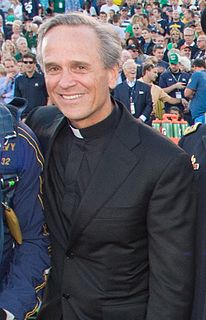A Quote by Aldous Huxley
Human beings act in a great variety of irrational ways, but all of them seem to be capable, if given a fair chance, of making a reasonable choice in the light of available evidence. Democratic institutions can be made to work only if all concerned do their best to impart knowledge and to encourage rationality. But today, in the world's most powerful democracy, the politicians and the propagandists prefer to make nonsense of democratic procedures by appealing almost exclusively to the ignorance and irrationality of the electors.
Quote Topics
Act
Almost
Appealing
Available
Beings
Best
Capable
Chance
Choice
Concerned
Democracy
Democratic
Encourage
Evidence
Fair
Fair Chance
Given
Great
Human
Human Being
Human Beings
Ignorance
Impart
Institutions
Irrational
Irrationality
Knowledge
Light
Made
Make
Making
Most
Most Powerful
Nonsense
Only
Politicians
Powerful
Prefer
Procedures
Rationality
Reasonable
Seem
Them
Today
Variety
Ways
Work
World
Related Quotes
We can't attribute a long history of democratic traditions to Japan, either, but today Japan boasts a fully-fledged democracy in which governments change according to democratic procedures. It's no coincidence that the Taiwanese, Japanese, and South Korean economies are among the most innovative in Asia.
It is equally unreasonable to run a university as a "participatory democracy," the approach to governance that once existed in Europe. That approach in European institutions of higher learning was appealing to professors because it was democratic. But those institutions also suffered because they lacked an executive decision-making process; making changes became virtually impossible.
I think some people have blind faith in American institutions without knowing a whole lot about them and think they will stand up to Donald Trump and are indestructible. I actually think democracy is not a definable and achievable state. Any country is either becoming more democratic or less democratic. I think the United States hasn't tended to its journey toward democracy in a long time. It's been becoming less democratic, and right now it's in danger of becoming drastically less democratic.
Certainly, if we believe in democracy and democratic systems, when [Benazir Bhutto] failed to pass any legislation, really, at all in her first two years in government during her first term and in fact had a tenure that was marked not only by gross corruption but by human rights abuses, that should have been a time for people to say, "Well, OK, we've given you an opportunity and you haven't bettered the institutions, you haven't strengthened the democratic cause - we may not vote you back."
The claim that democracy and efficiency are contradictory is nonsense. That's evident in the history of democracy itself, because it is only democrats who were and continue to be capable of learning from mistakes. A more appropriate question is to ask whether a country like China, which has been so incredibly successful economically, is actually inefficient in light of its environmental destruction and its corruption. In China's perception, however, the democratic model is doubtlessly inferior.
I believe Tunisia and Egypt should look to Turkey and see what not to do. Turkey seems to be a secular and democratic country but it is only a show. We are losing the effectiveness of democratic institutions like parliament and judiciary. They now are turning into tools for the benefit of a president-ordering system. A democratic government is possible only on a comprehensive democratic base surrounded by the participatory action of ordinary people.
I am far more concerned about policies of the Democratic administration and Democratic Party that infringe on the rights of religious institutions and practices and open the door for using taxpayer dollars for abortions, to which many Americans have profound moral objections. Those are steps that would show a lack of respect for Catholics and their institutions.
All of those on the left, as I am, have always vastly preferred the democratic society over the hierarchical society and still do, but the democratic culture doesn't exist without highly informed citizens capable of thinking well, and if you have schools in which 40 percent of the people coming out of them cannot make change for a dollar, you don't have a democracy. You have a sibling society.
What the Affordable Care Act started was a change in the American health care system from paying for procedures to paying for outcomes, paying for health. Other nations have already made that move. We pay for procedures and we get the best procedures in the world and we get the most procedures in the world, and then we spend a huge chunk of our GDP on health care, but we don't have the best outcomes.






































